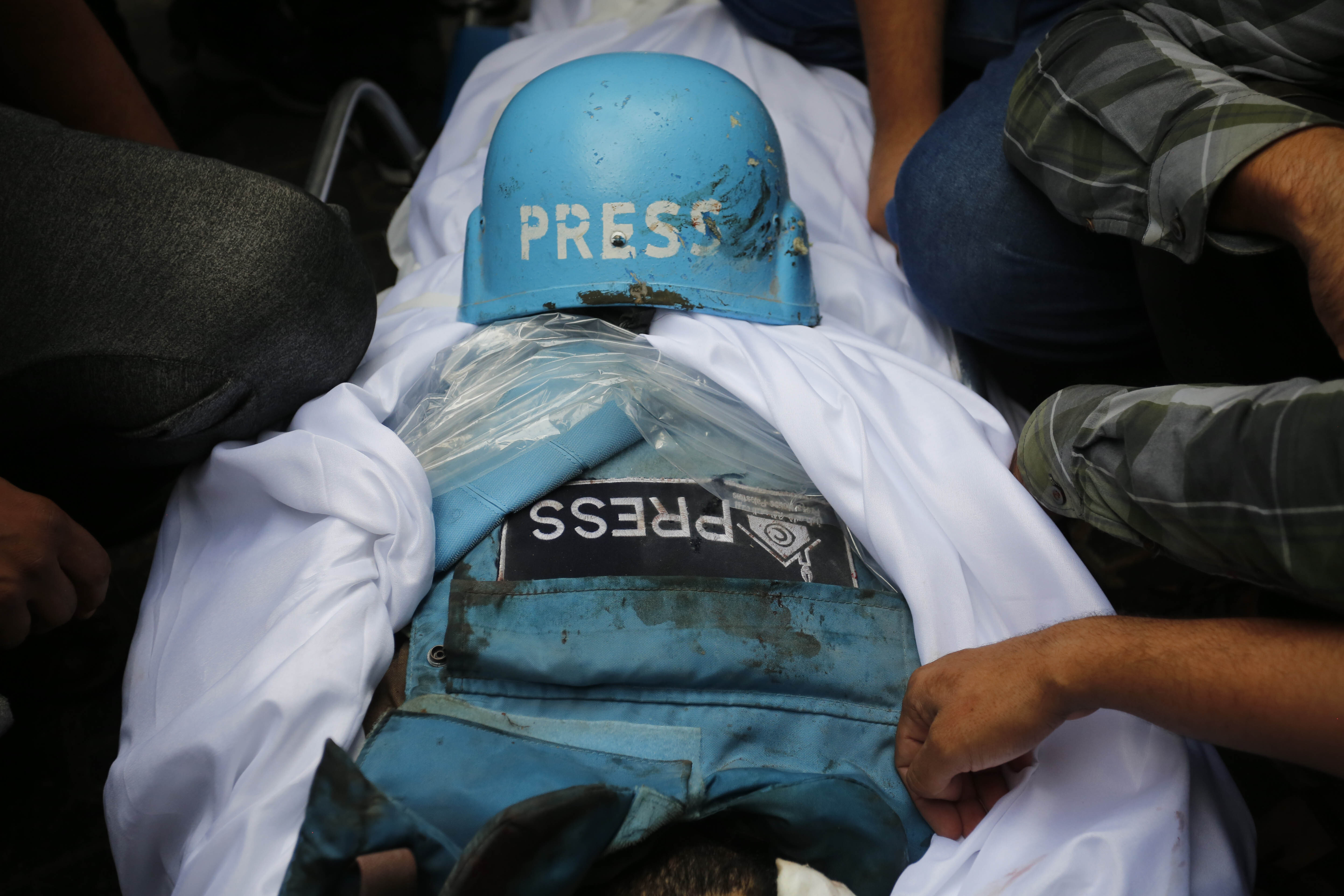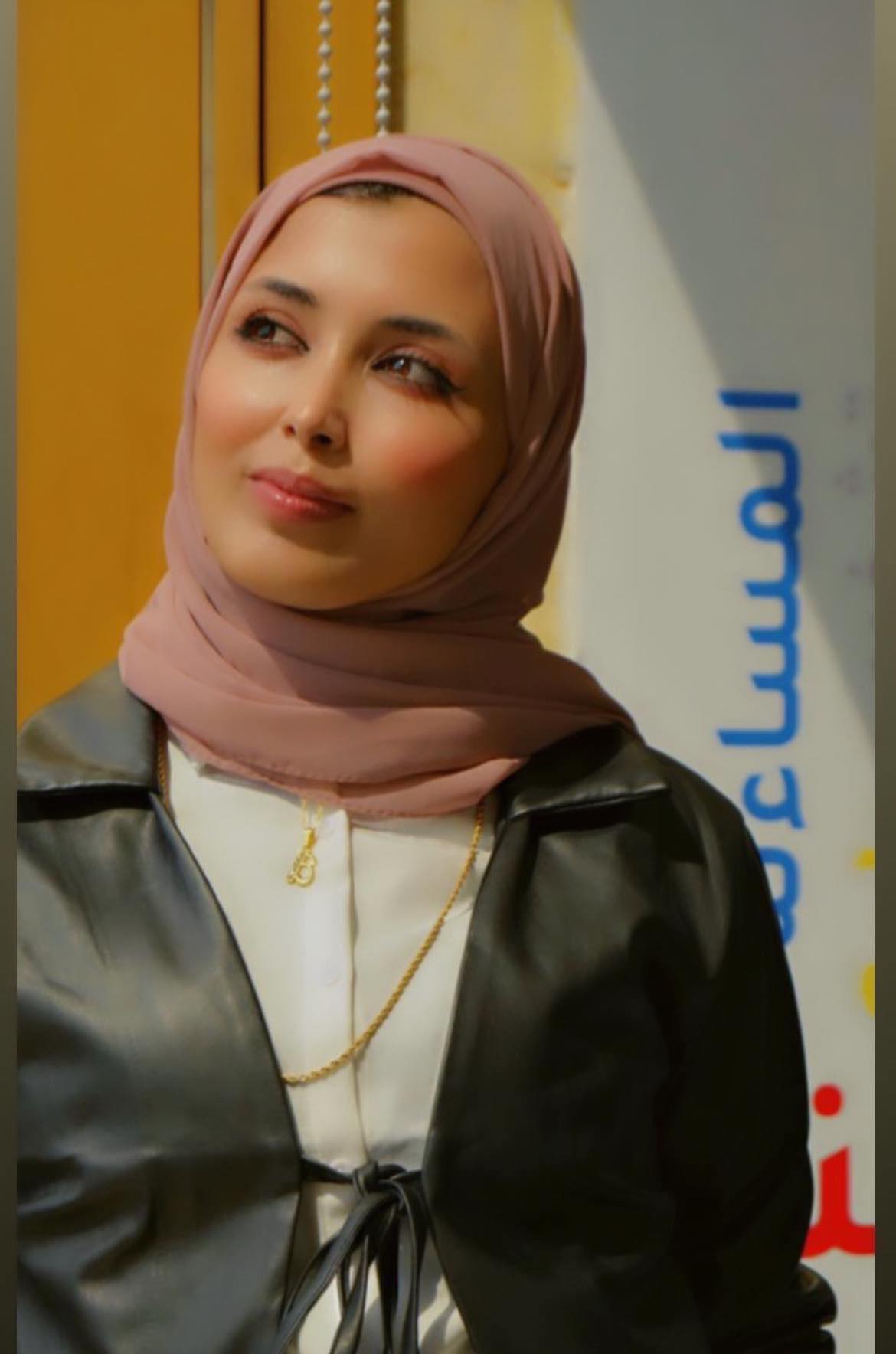على مر السنوات طالت الاعتداءات الإسرائيلية المتكررة على قطاع غزة الكثير من الصحفيين، إذ بدا جليًا أن قوات الاحتلال تتخذ من الطواقم الصحفية هدفًا لها، وعمدت إلى تدمير المباني الإعلامية بكوادرها والبنى التحتية، في محاولة لمنع نشر انتهاكاتها تجاه الشعب الفلسطيني.
هي سلسلة من الممارسات التي كان آخرها مقتل 20 صحفيًّا وإصابة عشرات آخرين، إضافة إلى تدمير 50 مؤسسة صحفية بالكامل، أو التي دمرت جزئيًّا، خلال العدوان الإسرائيلي على قطاع غزة في السابع من أكتوبر/تشرين الأول الجاري، وفق أرقام نقابة الصحفيين الفلسطينيين، ليطرح سؤال جديً حول موقف القانون الدولي الإنساني من انتهاكات إسرائيل؟
كيف يحاصر الاحتلال الحقيقة؟
"الاحتلال يستهدفنا كصحفيين بشكلٍ مباشر سواء بالرصاص الحي أو الصواريخ، الصحفي في الميدان يَنقل الخبر ولا يعلم هل سيبقى حيا أم سيعلن شهيدًا ويصبح هو الخبر"، بهذه العبارة بدأ محمد صبح الصحفي الفلسطيني في قطاع غزة، حديثه عن الانتهاكات التي يتعرض إليها الصحفيون.
يسرد صبح التحديات التي تواجهه بمعية زملائه أثناء تغطيتهم العدوان الإسرائيلي على قطاع غزة، إذ تتمثل في انقطاع الإنترنت وفصل الكهرباء المستمر الذي يحول دون عمل الصحفي بسرعة، ويمنعه من القيام بمهامه وإيصال ما يحدث في الميدان.
يستهدف الاحتلال أسر الصحفيين، فينشغل الصحفي بالبحث عن الأمان لعائلته، أكثر من سعيه لتغطية الأحداث، كما يخشى الصحفيون من استهدافهم أثناء سيرهم في المركبات أو تواجدهم في أماكن الحدث المباشر، وعدم توفر المكاتب، ونقص الكاميرات والمعدات الصحفية والأجهزة وعربات البث، وعربات نقل الأخبار بعد أن تم استهداف الكثير منها، وفق صبح.
تعليقًأ على ذلك، يرى أستاذ القانون - المختص في قضايا حقوق الإنسان - سيف الجندي أن الاستهداف المباشر المقصود بحقّ الصحفيين يُشكّل قتلا للحقيقة، ويمثّل جريمة حرب، بموجب نظام المحكمة الجنائية الدولية – نظام روما الأساسي لسنة 1998، إذ إنّ الاعتداء على الصحفيين لا يؤخذ بسياقٍ أحاديّ لمجرّد اعتباره جريمة، بل يدخل في إطار تصنيف أشد انتهاكاً بموجب هذه القواعد المشار إليها.
يستهدف الاحتلال أسر الصحفيين، فينشغل الصحفي بالبحث عن الأمان لعائلته، أكثر من سعيه لتغطية الأحداث، كما يخشى الصحفيون من استهدافهم أثناء سيرهم في المركبات أو تواجدهم في الميدان.
ويضيف الجندي أن "العالم العربي يعيش اليوم حالة أزمة مبرّرة مع مفهوم القانون الدوليّ بسبب إفلات الاحتلال الإسرائيليّ من المساءلة - أو حتى المسؤولية - تجاه جرائم الحرب المرتكبة بحقّ المدنيين من أطفال ونساء وشيوخ، وكذلك غياب التدابير الفعليّة على الجرائم المرتكبة بحقّ الصحفيين. تداعيات هذه الأزمة ستجد لها أفقاً أوسع ما بعد الأزمة والكارثة الإنسانيّة في قطاع غزة".
هل يحمي القانون الدولي الإنساني الصحفيين؟
لم تتضمن قواعد القانون الدولي الإنساني الذي ينسحب على حالة الحروب والنزاعات المسلحة، إلا إشارتين إلى العاملين في الحقل الصحفي والإعلامي وهما (المادة 4) من اتفاقية جنيف الثالثة التي شملت الأشخاص الذين يرافقون القوات المسلحة دون أن يكونوا في الواقع جزءاً منھا، كالأشخاص المدنيين الموجودين ضمن أطقم الطائرات الحربية، والمراسلين الحربيين، وغيرهم من الأشخاص.
وثمة أيضا المــادة 79 من البروتوكول الإضافي الأول التي أشارت إلى تدابير تتمثل في حماية وإجازة الحصول على بطاقة هوية تصدرها حكومة الدولة التي يكون الصحفي من رعاياها، أو التي يقيم فيها، أو التي يقع فيها جهاز الأنباء الذي يستخدمه، وتشهد على صفته كصحفي.
الباحث الصحفي حسين شرايرة في حديثه لـ "مجلة الصحافة " يقول إن الصحفييين يتمتعون بالحماية العامة الممنوحة للمدنيين بصورة أساسية وفقًا لاتفاقيات جنيف الرابعة لعام 1949 والبرتوكولين الإضافيين الملحقين بها لعام 1977، وتمثل هذه الاتفاقيات أفضل وسيلة عمومية لحماية الصحفيين الذين يعملون في مناطق الخطر.
الاستهداف المباشر المقصود بحقّ الصحفيين يُشكّل قتلا للحقيقة، ويمثّل جريمة حرب، بموجب نظام المحكمة الجنائية الدولية – نظام روما الأساسي لسنة 1998.
وفيما يتعلق بالصحفيين الذين يقومون بمهام خطرة أثناء النزاعات المسلحة وفي مناطق التوتر، فإنهم يُعتبرون أشخاصًا مدنيين وفقًا لأحكام المادة 79 من البروتوكول الأول لعام 1977. وبناءً على ذلك، تجب لهم الحماية القانونية الدولية ضد أي اعتداء قد يتعرضون له. هذه الحماية مشروطة بعدم مشاركتهم في أي نشاط يمكن أن يضر بوضعهم كمدنيين أو كصحفيين، وفق شرايرة.
ويشرح شرايرة أن على "الصحفي الحرص على قراءة أهمية المعلومة قرب الدبابة وبعيداً عنها، ومعرفة قيمتها المضافة والمصلحة منها، حيث إن ثمة صحفيين يتورطون في تفاصيل غير مهمة للجمهور، لكنها مهمة استخبارتياً، مما يوقعهم في مرمى العمليات العسكرية".
ونص قرار مجلس الأمن رقم 2222 على ضرورة حماية الصحفيين والإعلاميين والأفراد المرتبطين بهم الذين يغطون حالات النزاع كمدنيين، ويشير القرار أيضا إلى أن المعدات والمكاتب والأستوديوهات الإعلامية هي أصول مدنية وليست أصولا أو ممتلكات عسكرية، وبالتالي، يجب ألا تكون هدفا لهجمات أو أعمال انتقامية.
ما قواعد الحرب التي تطبق على الصحفيين في غزة ؟
وجه أحد الصحفيين سؤالا للرئيس الأمريكي بايدن وهو على متن طائرة الرئاسة في طريقه إلى العاصمة الأمريكية واشنطن، من تل أبيب، حول ما إذا كانت إسرائيل تلتزم بقوانين الحرب خلال هجومها على قطاع غزة، مكتفيا بهذه بالإجابة: "كان من اللطيف التحدث معكم"، وفقا لبيان من البيت الأبيض، فما هي قواعد الحرب التي ينبغي على إسرائيل احترامها وهل نصت على حماية الصحفيين؟
أستاذ القانون الدولي العام، دكتور عمران محافظة يعتبر في حديث لـ "مجلة الصحافة" أن "القواعد التي يجب تطبيقها على الصحفيين تتمثل في عدم استهدافهم بالقتل والتشويه والتعذيب أو أخذهم كرهائن ومعاملتهم معاملة قاسية مهينة للكرامة أثناء العمليات العسكرية وكذلك عدم استهداف مقراتهم ووسائلهم التي يستخدمونها في نقل أخبار الحرب، وفي حال أملت الضرورات الحربية التعرض بالهجوم لأماكن قد يتواجد فيها صحفيين، يتوجب على قوات الاحتلال أن توجه إنذارا بوسائل مجدية حتى يتسنى لهم مغادرة المكان المستهدف".
نص قرار مجلس الأمن رقم 2222 على ضرورة حماية الصحفيين والإعلاميين والأفراد المرتبطين بهم الذين يغطون حالات النزاع كمدنيين، ويشير القرار أيضا إلى أن المعدات والمكاتب والأستوديوهات الإعلامية هي أصول مدنية وليست أصولا أو ممتلكات عسكرية ولا يجب ألا تكون هدفا لهجمات أو أعمال انتقامية.
وتشمل قواعد القانون الدولي الإنساني التي تحمي الصحفيين، وفق الباحث الصحفي حسين شرايرة "حماية المَرافق والأماكن الإعلامية المدنية، منع معاملة الصحفيين بشكل قاس أو غير إنساني في حال التوقيف، ومنع مصادرة أو تدمير المعدات والوثائق الصحفية".
وفيما يتعلق باتفاقية جنيف الرابعة لعام 1949 فهي تعنى بحماية المدنيين وقت النزاعات الدولية، وتتضمن مادة – كما في كل اتفاقيات جنيف الأربع – للحماية في حالة النزاعات المسلحة غير الدولية. كما أنها تحمي المدنيين تحت الاحتلال، والأعيان المدنية أي المساكن والمدارس والمنشآت، وتحمي أيضا المستشفيات وأماكن العبادة و تحمي هذه الاتفاقية الصحفيين بوصفهم مدنيين فقط، حيث إن تعريف الشخص المدني ينطبق على الصحفيين، فقد عرفت الاتفاقية المدني بأنه الشخص الذي لا ينطبق عليه تعريف المقاتل.
بالرغم من أن مهمة الصحفي تتضاعف في الحروب وتصبح أكثر خطورة لأنه يقوم بمهمته تحت النار، إلا أن القانون الدولي الإنساني أغفل توفير الحماية له باعتباره شخصًا يقوم بأداء مهام خطرة في أثناء تغطية النزاعات المسلحة والحروب (قد تؤدي إلى مقتله)، إذ يتمتع بالحماية القانونية العامة التي تشمل المدنيين، باعتباره شخصًا مدنيًا وليس هدفًا عسكريًا.








































